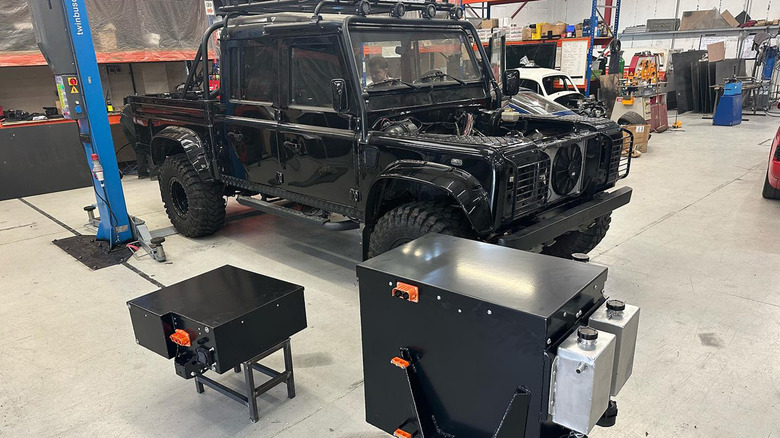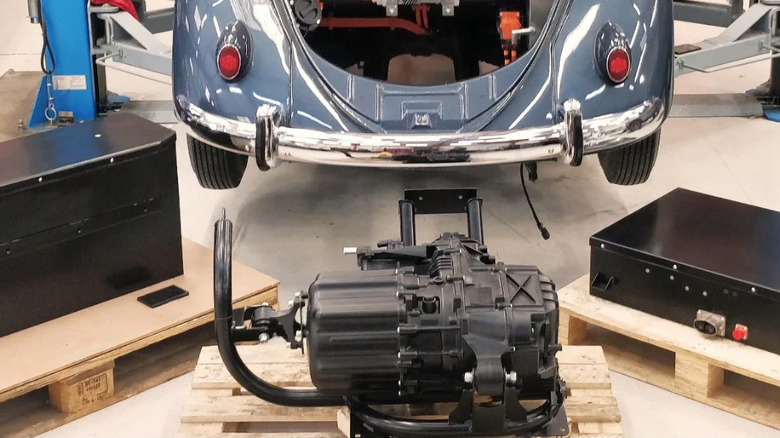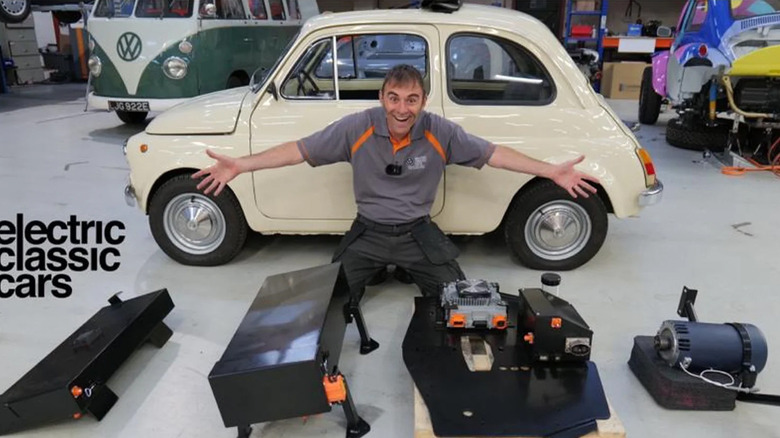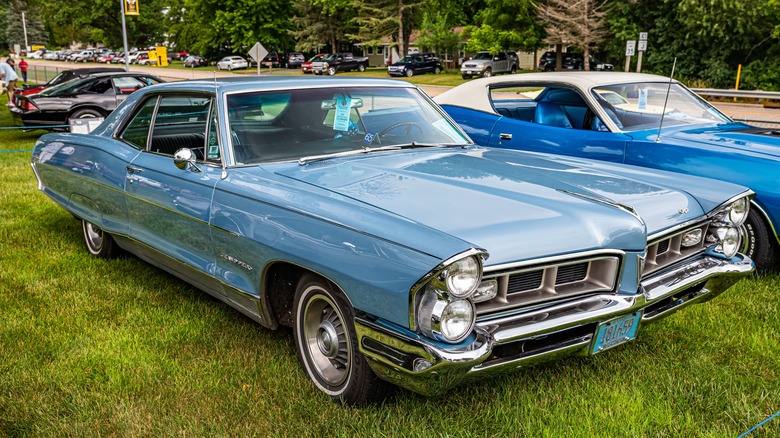Is It Worth Converting A Classic Car To Electric And And What Are Some Of The Biggest Costs?
Electric vehicles are undoubtedly going to dominate the auto industry in the coming years, especially with new EV credits that were included in the recent Inflation Reduction Act and looming mandates to phase out internal combustion engines across the world over the next 15 years or so. Owners of classic and antique cars will be able to limbo below those regulations for as long as they can keep those cars running, but it's not out of the question to think that the government may soon be coming for your old muscle or sports car as part of the global effort to reduce carbon emissions. Whether that car is a rugged Jeep CJ5 or CJ7 or a gorgeous first-generation Ford Thunderbird, you may have already been tempted by the EV siren song.
For classic car loyalists, that would mean converting their dinosaur juice guzzler to a clean, mean, classic machine instead of giving up their beloved old friends. You'd probably assume that is a long and difficult process that will put a gigantic dent in your bank account, but the potential benefits and future savings are obvious. So is it worth converting your classic car to an EV, and how much does this process cost?
EV conversion kits can run into the six figure range
Sit down and buckle up, because the cost of converting a classic car to an EV can easily run beyond $100,000. The batteries, motors, and electronics needed to manage the charging process are just a small piece of that expense. Motor Trend's Steven Rupp was put in charge of converting sister publication Hot Rod Magazine's '57 Chevy into an EV, and called the process "financially irresponsible." The fact that he came to that conclusion while spending company money should tell you all you need to know.
Internal combustion to EV conversions require much more than swapping out the motors and adding batteries and the requisite electronics. On many cars, you'll need to make allowances for replacing the power steering pump, brake booster, and heating system, which use the kinetic energy and/or vacuum produced by a car's engine. Electric Classic Cars in Newtown, Wales, has done dozens of EV conversions, and provides kits to a select group of professional installers. Their Classic Volkswagen Beetle kit provides up to 150 miles of range via a single-gear, rear-wheel drive system, but takes up to 80 hours to install.
The cost of installing an EV conversion is significant
At the average U.S. labor rate of about $100 an hour, that means you'll have to budget at least $8,000 for installation, provided you can find a mechanic with enough free time and gumption. Electric Classic Cars estimates the cost of conversion at £35,000 to £100,000 depending on specifications. That's roughly between $45,000 and $128,000, which is enough to buy up to three of the cars on our list of the cheapest EVs.
EV West in San Marcos, California, will sell you a conversion kit for about a dozen different classic Porsche and Volkswagen models, but the nearly $9,000 Porsche 355 conversion kit doesn't include batteries, cables, or a contactor box. Their kit for a Type 2 Volkswagen bus is more complete at $22,000, but you'll still have to dedicate several months' worth of weekends to install it or pay a shop a small fortune to do it for you.
Your classic car's weight might also be an obstacle
Justin Thomas of Treehugger conservatively estimates the cost of an EV conversion at $10,000 to $20,000, but notes that is a project that "requires a lot of mechanical and electrical experience" and can be fraught with unforeseen pitfalls. For intrepid souls who want to take on such a project, Thomas recommends using a 2,000 to 3,000-pound car as a base. That rules out American-made classics like the 1962-68 Pontiac Grand Prix, which weighs close to 4,300 pounds. Although there are plenty of classics that tip the scales at a more EV conversion-friendly number, like the 2,900-pound 1953 Corvette, many of these cars don't have the storage space to mount batteries and would require massive amounts of work to implement a full conversion.
Unless you have an electrical engineering degree and a bottomless supply of money and patience, you're probably best off dedicating your resources to maintaining and preserving your classic car's existing fossil fuel systems, at least until the EV police come for it with their mobile crushers.



